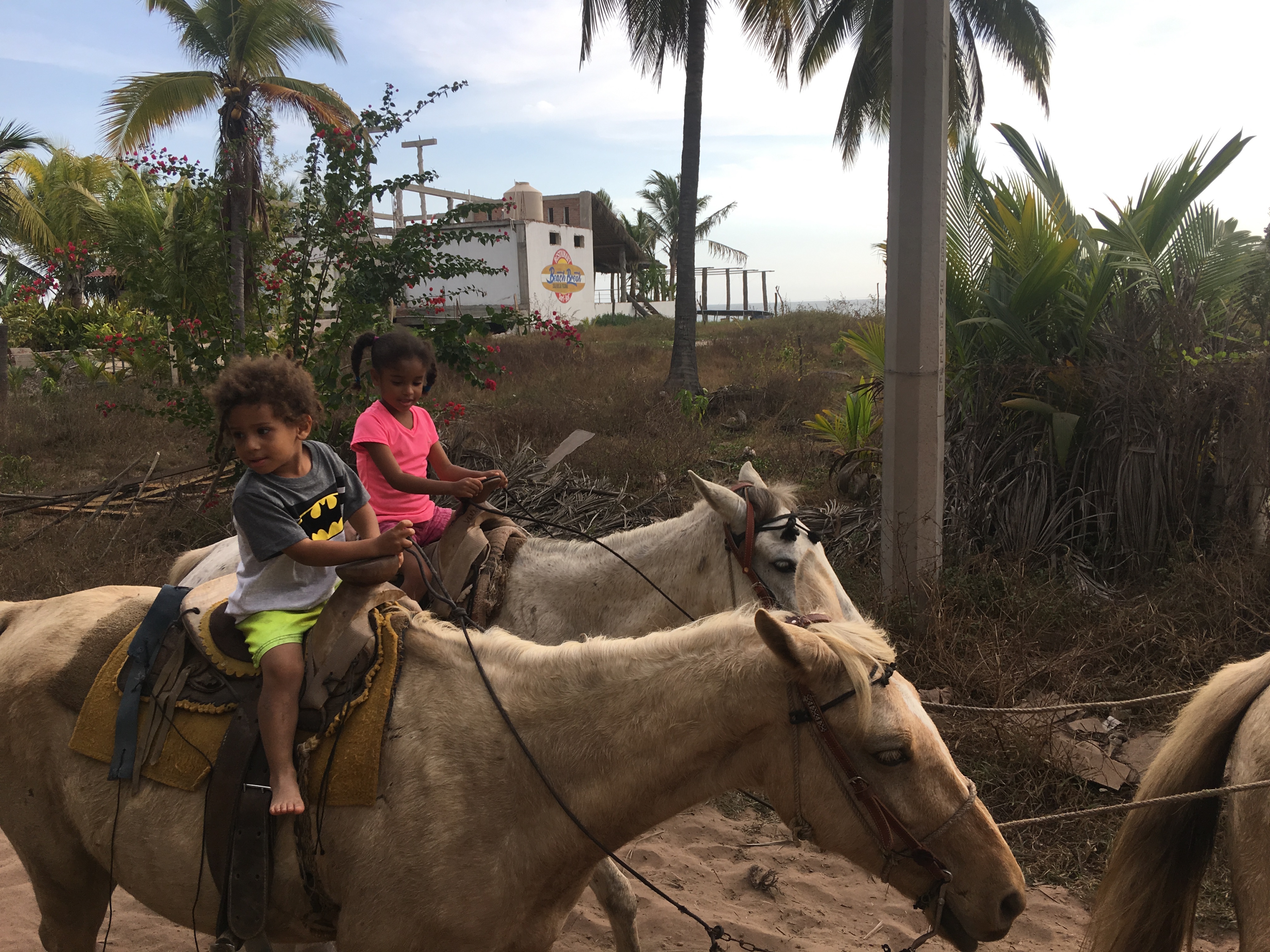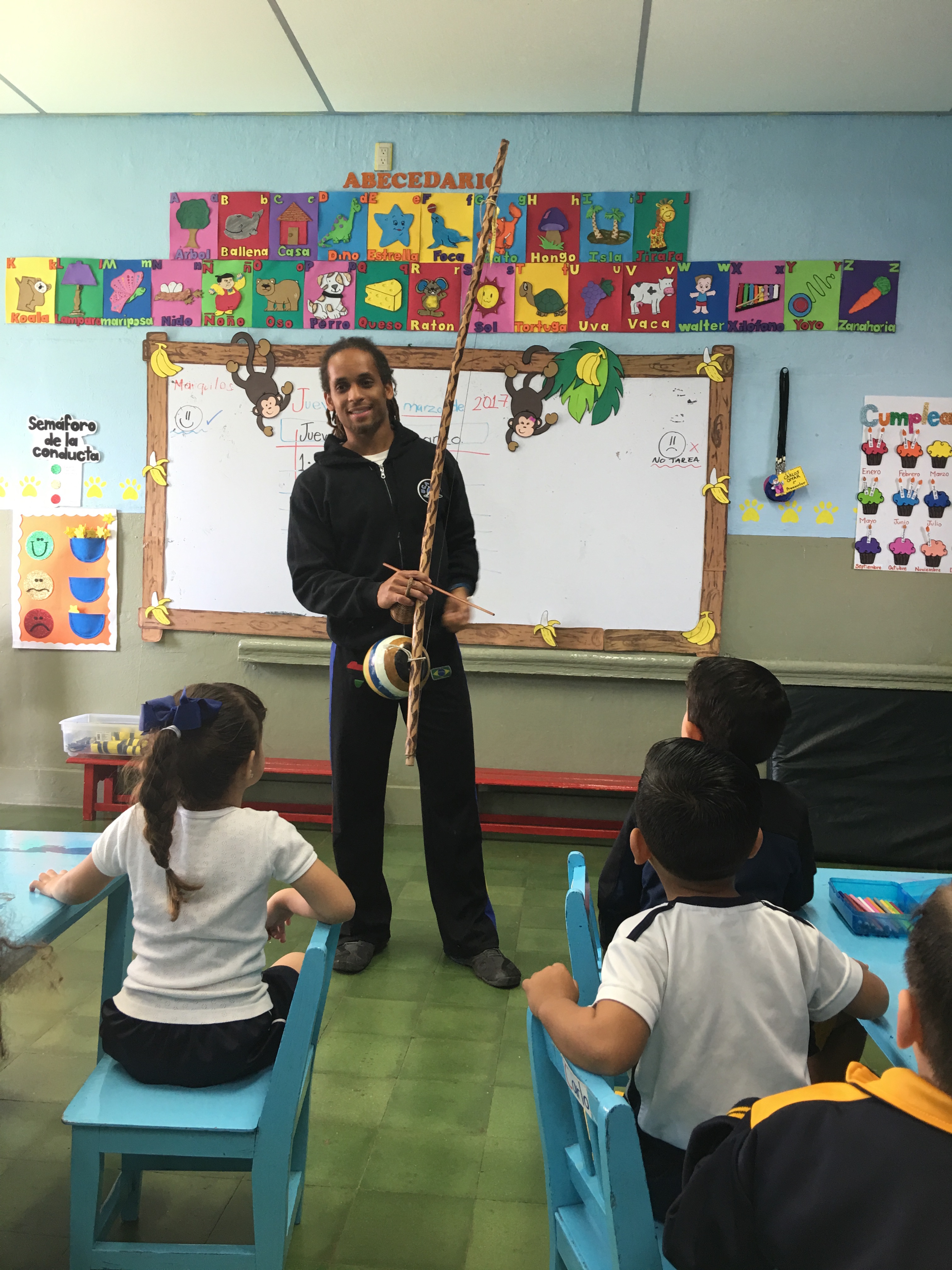I am often asked if our family spoke Spanish before moving to Mexico. No, we didn’t! I took one semester in college and the hubby took a couple years in high school. Beyond that, we were far from fluent before moving here. For the most part, Spanish was a brand new language for us all!
Honestly, we’re still far from fluent as Spanish is a rich and beautiful language. We are however, coming along very nicely and can easily navigate the city with little misunderstanding. Well, most days! Our kiddos were thrown into a full-day Spanish language, Mexican elementary school and they too are learning to navigate linguistically. They’re adjusting well and our middle son might be a bit more fluent than us adults!

Here are five things we do on a regular basis that have helped us learn enough to feel very comfortable living in a place where our native language is not the main language.
- We use a language acquisition program
The absolute best part of modern-day technology is the ability to access new information remotely, for free or very low-cost. Before our family moved to Mexico, we invested in a very well designed program by Rosetta Stone. While Rosetta Stone is touted as one of the best language tools available, it is an investment. There are plenty of great ones that are much less expensive. We are also happy with the products offered by Duolingo and I’ve read good reviews of Memrise. Language apps are great because they can be accessed with a smart phone from anywhere, anytime. Use the built-in testing and tracking components to stay engaged and to view progress over time.
- We watch movies in Spanish
I love watching television shows and movies en Espanól with English subtitles. I am able to hear the words with their correct pronunciation and make some correlation between the Spanish words being spoken and the English words at the bottom of the screen. Sometimes the subtitles and the spoken words are not a verbatim translation but they are close enough in most cases. By watching movies in Spanish, I’m able to learn more Spanish words and colloquialisms.
- We don’t limit ourselves to the Expat enclaves
Having a significant Expat population for many new wanderers is important. Many express a desire to be able to easily communicate with others, have support systems, and social engagement opportunities. It makes sense. We are indeed social beings! But, I advise that any traveler, looking to engage in learning the true culture and language of a new place, get acquainted with native speakers. Spending a majority of the day, every day with folks who speak your mother tongue will not directly increase your chances of picking up a new language. So, don’t limit yourself to expat-heavy venues and activities. Venture out amongst the locals!

- We hired a language tutor
Since moving to Mexico, my husband has enlisted the help of a language tutor. They meet for one-hour, twice weekly, for formal one-on-one Spanish lessons. He receives homework to complete and he has seen some improvement since beginning. Language tutoring can be done in a range of ways from one-on-one lessons to small or even large group instruction. In most large cities across the world, there are typically classes available for all types of learners. You may even be able to find a language coffee-clatch group where you can practice your skills with people at various levels of fluency.
- We believe in: Immersion, Immersion, Immersion
The only way to learn is to try so my husband and I have each found ways to immerse ourselves in the language on a regular basis. My husband spends two mornings per week working with the teachers at our children’s school. While volunteering, he learns Spanish at a kid’s level which is ideal for a new learner. I chip in once a week at a salon and spa in our area. While the clientele is mostly English-speaking, the staff is not, so it’s great for me to practice my translation skills when a client wishes to tell a service provider something or vice versa. I also stretch myself to only speak Spanish with the employees and I am grateful for such a caring and patient team of people! Finding ways to immerse yourself in the language is a great way to lean quickly.
These are just a few of many general tools that anyone can use to learn most every language. Many of these activities can be done prior to moving if you so desire. Where there’s a will there’s a way and I strongly advise against letting the apprehension of learning a new language keep you from traveling or even moving abroad.
If you’ve learned or are currently learning a new language, what are some things you’ve done to make acquisition easier? Let me know in the comments, I’m always looking for ways to improve!

My favorite way to practice a non-native language is a form of immersion, I suppose. I like to engage in hobbies with locals who speak little or no English. Having an activity you’re already familiar with gives you a context in which to quickly incorporate new vocabulary. Working with others who don’t speak your native language provides an extra motivation to communicate in the target language, and it’s a great way to make new friends, too!